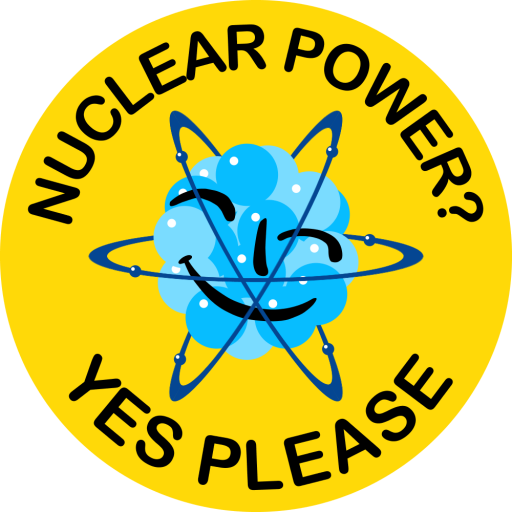The World Wildlife Foundation continuously makes so called “climate scorecards” for the G8 countries. Since the issue of whether a nation is acting in an environmentaly sound manner or not is a very complex one, the WWF is making these scorecards that summarize the G8 countries and gives them a ranking which makes it easier to see how they are doing.
In July 2009, the three top ranked countries were Germany, the United Kingdom and France. As you are probably aware, Germany and the UK rely heavilly on coal (24% and 28% of total respectively) and gas (23% and 35% respectively) for their energy production while France only gets 5% from coal and 14% from gas. That is 1/5 the amount of coal and about 1/2 to 1/3 the amount of gas. France’s emissions per produced kilowatthour of electricity is 86 grams carbon dioxide, while Germany outputs 495 grams per kilowatthour and the UK a whooping 572 grams per kilowatthour.
One would imagine that this should give France a great advantage over Germany and the UK and easily beat them at the top. Right?
Wrong!
The WWF ranks both Germany and the UK higher than France. Why? Because the WWF changed the figures. In the climate scorecard for France, we find the following footnote:
1 WWF does not consider nuclear power to be a viable policy option. The indicators “emissions per capita”, “emissions per GDP” and “CO2 per kWh electricity” for all countries have therefore been adjusted as if the generation of electricity from nuclear power had produced 350 g CO2/kWh (emission factor for natural gas). Without the adjustment, the original indicators for France would have been much lower, e.g. 86 g CO2/kWh.
There it is, in plain writing. They changed the numbers, simply because they don’t like nuclear power, thus down-ranking France despite being the lowest emitter of carbon dioxide by far of the G8 countries. They cheated on the scorecard by tweaking the numbers.
And it’s not some small tweak either. From 86 grams to 362 grams… that is upping the numbers to 400% of their actual value! What is their reasoning for this? “[The] WWF does not consider nuclear power to be a viable policy option”. In short: they don’t like it. So they quadrupled the number, just like that.
The WWF also ranked Sweden, there boosting of the numbers even more. For Sweden they change the number from 47 grams per kilowatthour to 212 grams. That is 450% of its original value.
UPDATE: At the Energy From Thorium forum, a person got in touch with Allianz Insurance and asked them what was the meaning of this obvious manipulation of number. The reply was this:
Re measurement in the report: We received criticism last year for not acknowledging the fact that some countries (i.e. France) have lower CO2 emissions thanks to nuclear power. But neither WWF nor Allianz wants to encourage nuclear power as the power source for the future. The fact that there is no solution for ultimate storage is a particular concern. And we think that this world needs a different strategy for its energy needs (renewables, efficiency) – which also leads to different investments in grids and other infrastructure.
They don’t want to “encourage” the use of nuclear power. But why would anyone be enouraged? Because it is environmentally friendly of course! And here I foolishly assumed that WWF was in it for the environment… but apparently not, because they don’t want people to be “enouraged” by the fact that nuclear power has extremely low emissions. So they changed that number outright.
Not only that but they are dead wrong when they say there are no viable solutions. KBS-3 is in the final stages of development. The work to grant the method environmental approval starts next year.
This is quite simply outtrageous. It is neither scientific, nor honest. This kind of smearing and badmouthing of nuclear power is what made us start this website, because even though one would hope that this is simply an isolated incident, it is not. This kind of deception is taking place constantly. The only thing unique about this particular case is the gall they have in admitting that they actually did it.
How are we meant to trust bodies like WWF when they do this sort of thing? Had this kind of behaviour taken place at a nuclear plant, their permit would have been rescinded and the people in charge would most likely be facing criminal charges for falsifying information! But the WWF gets away with it. Why? Why should they be allowed to cheat on the numbers just to make them fit the policy, rather than fitting the policy after the numbers? Science gets ripped to shreds because the truth is too unpalatable for the nuclear opponents to swallow. What gave them the right to do so?
And maybe the most important question of all: how is the climate, the environment and the population of this planet benefiting by bodies like the WWF lying to us? What gave them the right to defend their policy first rather than the environment? What becomes better from this?
60 Comments
An apple a day, keeps nuclear power away
Published by Michael on July 22, 2009It’s easier than you think to prove nuclear power is not safe. The weak point in the arguing for the safety of nuclear power is certain assumptions that are made. All you need to do to prove nuclear power is not safe is to successfully challenge those assumptions. And an apple will do it.